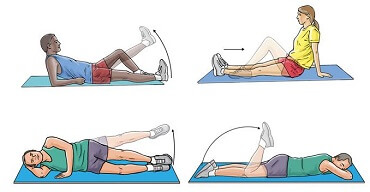After a duration of time, you might be given weekend passes or be enabled to go on unsupervised trips. These privileges offer a reward for you to continue progressing in your healing and set a great example for newly sober customers. Taking a while to get ready for rehab can increase your opportunities of success in the long run.
Insurance information and past medical records. Alarm clock. Toiletries. Clothes. Laundry soap. Images of loved ones and other products to advise you of house. List of present medications. List of names, telephone number, and addresses of close friends and family. Reading and writing products. Activities to kill time, such as musical instruments, crossword books and puzzles.
Also, you might just want to Alcohol Rehab Center bring a small amount of cash and arrange for a family member or good friend to send you extra money if needed. Make certain to leave any expensive items in the house, such as fashion jewelry and high-end clothing and bags. Before leaving for rehabilitation you might likewise wish to take care of house, work, and school duties, such as: Arranging to take a leave of absence from school and/or work.
Establishing automatic Substance Abuse Facility expense payments. Providing a spouse or other member of the family with account numbers and passwords if they will be overseeing your financial resources while you are away. Letting friends and family know that you will be going to treatment (if you feel comfortable). The Americans with Disabilities Act prohibits companies from victimizing workers who have participated in drug abuse treatment.
For additional information about your rights, please see the Center for Substance Abuse Treatment's publication Are You in Healing from Alcohol or Drug Issues? Know Your Rights. 2 Some "housekeeping" tips to lower temptation when you return house consist of: Getting rid of drugs, alcohol, and paraphernalia. Do an extensive sweep of your home and be sure to check any secret hiding spots.
Lots of people erroneously believe that finishing a treatment program is completion of healing. The fact is that recovery is an ongoing procedure that requires time and effort. One way to increase the possibility of remaining sober is to have a great aftercare plan. Aftercare preparation is among the last actions throughout treatment.

They can assist you https://blogfreely.net/corielm00a/inpatient-treatment-differs-in-expense-between-200-and-900-per-day-with find other treatment suppliers, set up visits, and offer you with info on local self-help conferences. Having an aftercare plan is necessary because it increases the chances of long-lasting healing and decreases the possibilities of regression. 3 Everyone's aftercare strategy will be different, and a counselor can help you identify what will be most practical for you after treatment.
How To Open A Drug Rehab Home Things To Know Before You Get This
They are less limiting than rehab programs due to the fact that residents have the ability to leave the house throughout the day. how much does inpatient drug rehab cost. Many sober living homes have curfews, mandatory drug testing and rules in location to keep citizens safe and prevent relapse. Recovery conferences are complimentary self-help groups for individuals fighting with drug, alcohol and other addictions.
Twelve-step groups encourage members to share their battles with addiction, find a sponsor to guide them through the 12 steps and develop a sober support group. Other recovery meetings that do not fall into the 12-step category consist of SMART Healing, Ladies for Sobriety, LifeRing and Nonreligious Organizations for Sobriety. Outpatient treatment is likewise a choice after completing a residential program.
Outpatient rehabs normally use group and specific therapy for a few hours weekly. Psychotherapy or therapy can be supplied by a psychologist, social worker or counselor who concentrates on dependency. Therapists generally see clients for 1 to 2 sessions weekly. However the variety of sessions can vary depending upon your needs.
Doctors may meet you 1 or more times monthly to evaluate for any negative effects and determine if medications need to be adjusted. Regression is an issue for lots of individuals leaving rehab. It is typical to feel bombarded with triggers and mixed sensations as you transition from a structured and safe environment back to everyday life.
These consist of: Discovering new hobbies such as sports, reading, writing, and traveling. You can also think about going back to old pastimes that you may have ignored while using drugs. Creating a support network of sober people. Recovery meetings offer one method to link with similar people. Starting a new workout regimen.

Consuming a healthy diet of protein, veggies, fruits, and complicated carbs. Avoid extreme sugar, salt, and processed foods. Offering your time at a homeless shelter, soup kitchen, or assisted living home. Handling tension by practicing coping abilities that you learned in rehab, such as meditation and deep breathing. Visiting a relative or friend in rehabilitation can be useful to your enjoyed one's recovery.
The majority of programs also offer the chance to participate in a joint therapy session during gos to. A therapy session can enable member of the family to express their issues, resolve troublesome family characteristics and enhance interaction. Programs differ in their visitation policies. Some programs just enable weekend or night sees throughout specific hours.
4 Simple Techniques For How To Start A Drug Rehab Facility
This black-out period limits contact with friends and family in order to get the customer through detox and examine their inspiration for modification. Other programs just allow check outs if relative and customers accept take part in household treatment (how to start a drug rehab facility). Make sure to ask the treatment center about its policy before you visit.
They likewise may not be enabled to bring in unsealed drinks, which might have alcohol hidden in them. Visitors and their valuables might be browsed prior to the visitor can get in the center. Visitors may not be permitted to enter specific parts of the facility. This is especially true for customers' bed rooms or anywhere that can not be kept an eye on by team member.
The objective is for visitors to get a sense of what the treatment experience resembles for their loved ones. Joint therapy sessions might be voluntary or obligatory for visitors. If you are planning to take part in a therapy session, you may wish to think of what you want to state in advance.
Checking out a loved one in rehabilitation can cause blended sensations that can vary from excitement and joy to worry and anger. Lots of member of the family and buddies end up being used to unfavorable interactions when their loved ones are using alcohol and drugs. Visiting someone in rehabilitation is the primary step in practicing healthy interaction.
The Neighborhood Support Approach (CRA) is a well-studied and efficient type of treatment for customers and family members experiencing dependency. The technique looks for to improve healthy communication among member of the family. 1 Some CRA pointers for improving communication include: Deal empathy and understanding. Empathy includes putting yourself in the other individual's shoes.
Concentrating on all of the negative things a person has done during addiction can increase feelings of regret and shame, which further triggers a desire to use alcohol and drugs. Probably the individual is aware of the wrongs that they have actually committed. Rather, concentrate on your liked one's existing progress.